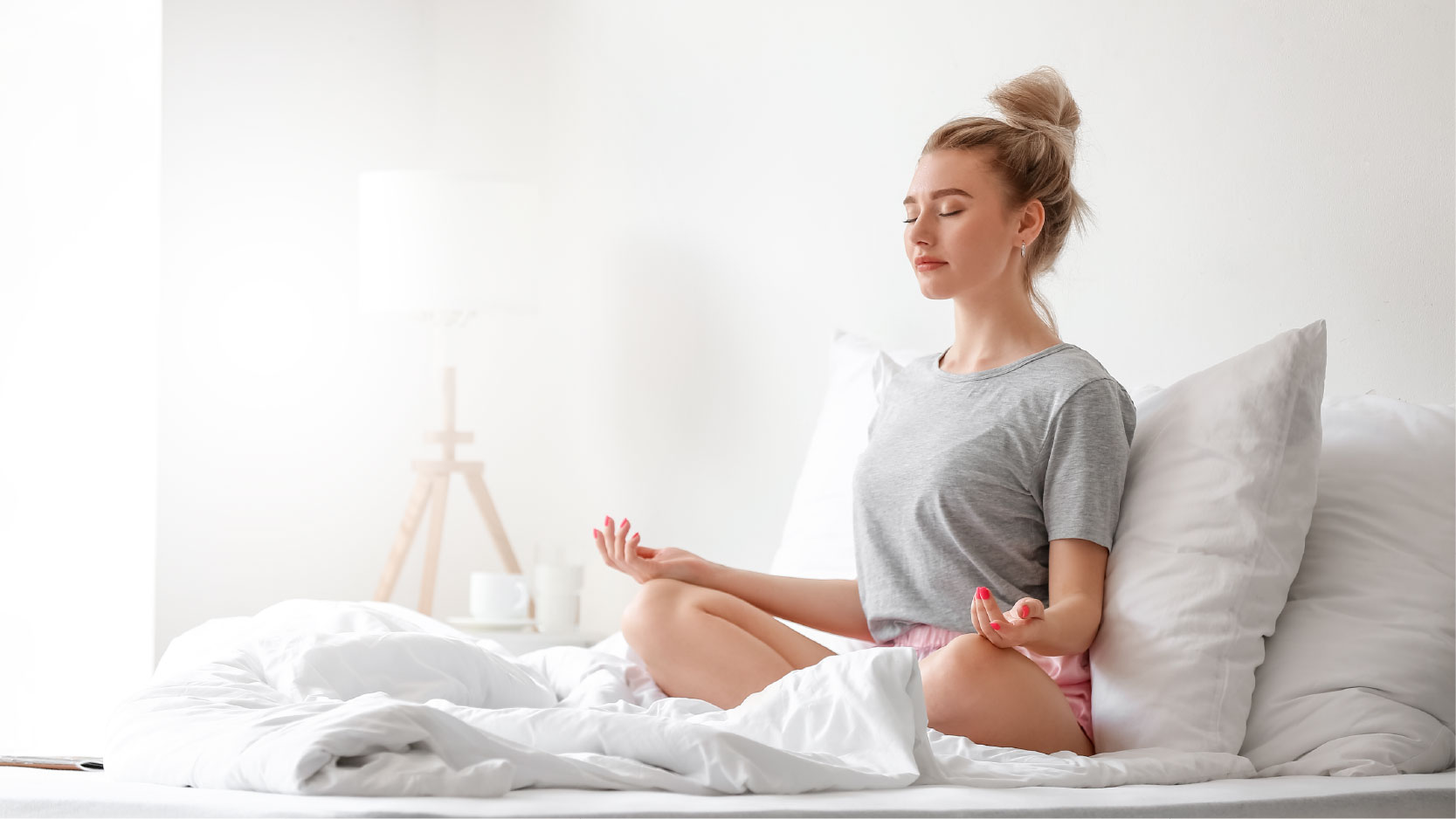When it comes to sleep, our bodies enjoy routine and consistency.
If you’re getting the amount of sleep you need, you’ll feel awake and alert all day long. While it’s quite natural to experience a slight dip in energy in the afternoon, you should not be struggling to stay awake
Of course, everyone has different natural rhythms when it comes to their sleep. This is partly hereditary. However, behavioural habits and lifestyle factors also come into play. Light and stimulation, what foods or drinks you are consuming, physical activity and stress, are other key factors that influence our sleep.
Here’s our advice on how to figure out what sleep schedule works best for you and how to stick to it:
- Use your age to determine how long you should be sleeping.
Babies and children to two years old require between 11 – 17 hours of sleep, including nights and naps.
- School-aged children up to age 17 require eight to 13 hours of sleep.
- Young adults and adults require seven to nine hours of sleep.
- Adults over 65 require seven to eight hours of sleep.
Also, pay attention to body cues. Some people are night owls and prefer a later bedtime. There are those who feel more energised waking up before or with the sunrise, and therefore tend to go to bed earlier.
- Set Your Bedtime by Your WakeTime
A good first rule is to look at what time you need to get up. This time should allow you enough time in the morning to get ready for your day without feeling. From there, count backward eight hours, and boom, that’s your ideal bedtime!
Remember that electronic devices tend to keep you awake for other reasons (work or the content you’re consuming may be alerting), so it’s still preferable to work on a screen-reducing strategy.
- Start by using an alarm
Set an alarm on your phone or fitness tracker to cue the start of your bedtime routine. Set a light alarm for the morning.
If you follow your bedtime routine strictly, you can eventually stop using an alarm. Your body will wake when you feel rested.
- But also… Beat the Clock
Try to ensure that social or work events fit around your sleep schedule – not the other way around. This will help you stick to a sleep schedule commitment while not feeling you are missing out on anything.
When out with friends or busy at a function, for example, leave at a reasonable time. Use this tactic to challenge yourself to stay focused and work with efficiency to finish up before bedtime.
- Establish a bedtime routine
Start to get ready for bed an hour beforehand. Turn off all machines that emit blue light and keep them out of the bedroom.
Other successful bedtime routines can include a warm bath or shower, stretching, yoga, personal hygiene, meditation, deep breathing, reading or writing. Choose the habits that work best for you.
- Set a wakeup routine
Ban the snooze button so that you can sleep until you must get up and enjoy more uninterrupted sleep.
Once you get up, ensure your morning includes rituals like a good coffee, a shower, breakfast and some form of movement in order to get the blood flowing and your brain working optimally.
- Keep Your Routine Intact on the Weekends
Saturday and Sunday are not always the days to sleep in two or three hours. This can throw off your sleep schedule. Come Sunday night, you won’t be tired for your normally appointed bedtime.
Of course, life can’t always be that rigid, so about 30 mins of extra sleep-in time on days off is reasonable.
- Apply the ‘15 minute’ rule
Go to sleep approximately 15 mins earlier (or later) every night, until you hit your ideal bedtime. Plan to wake up 15 minutes earlier (or later) as well. This gradual change gives your body time to adjust to lights and develop a new sleep schedule
Remember, sticking to this gradual adjustment is important even on the weekends. Staying up too late or sleeping in will make it harder for your body to set a new schedule
- Cultivate an inviting sleep environment
You want your bedroom to be quiet and dark to avoid disruptions. A cool yet comfortable temperature and soothing smells, like lavender, may promote relaxation and provide cues for sleep.
Finding the best mattress, best pillow, and bedding can make your bedroom a haven for comfort and rest. Speak to a bed expert at The Bed Centre for the best option for you.
- Cut out Caffeine from Midday
Heard this unofficial rule before? Caffeine has a “half-life” of four to six hours. That’s how much time it takes for most people to metabolise half the caffeine.
So, whilst many people can drink coffee at night and have no problem, for most of us, having coffee in the later afternoon will cut into our sleep — and throw off this all-important sleep routine
- Brush Your Teeth Early in the Evening
Consider this one a small hack that helps you avoid late-night snacking.
Not only can certain foods cause heartburn or contain caffeine that keeps you awake (like chocolate), but eating before bed can affect your digestive system, which diminishes sleep quality too.
- Open the curtains as you wake up.
Try to get outside and into the sun for even better results. If you live in a place that isn’t sunny or you get up before the sun rises, try using a sunlight lamp to tell your body it’s time to get up.




